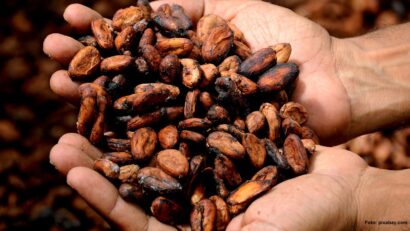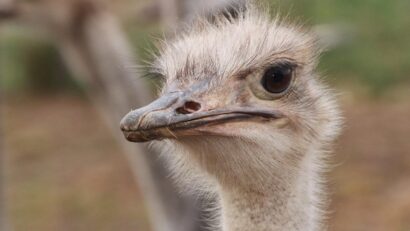Trending now: Api phytotherapy
Api phytotherapy is a complementary method of treatment of various conditions and diseases

Ana-Maria Cononovici, 12.08.2025, 12:00
It is known that Api phytotherapy is a complementary method of treatment of various conditions and diseases, based on natural remedies from medicinal plants, bee products and volatile oils, selected by the specialist doctor following an individual evaluation session. Now in its third edition, the Congress of the Romanian Society of Apitherapy, Phytotherapy and Aromatherapy (SRAFA) took place in Bucharest concurrently with the 5th Congress of the International Apitherapy Federation, inviting both specialists and people interested in finding the latest discoveries in the field.
Doctor Ştefan Stângaciu, the President of the Romanian Society of Apitherapy, Phytotherapy and Aromatherapy, told us more about the joy of organizing this event: “We have university professors, doctors, very good practitioners from the country and abroad, participants from 21 countries, on all topics related to the prevention and treatment of diseases in humans and animals, with natural products. What is important to know is, first of all, the fact that these natural products are increasingly better used, increasingly better accepted. We have overcome that phase in which it used to be said that chamomile is a banal plant and that it has no scientific basis, we have moved to a much higher level, in which university professors come and explain the mechanism of pharmacological action and we have also moved from that idea that only a chemically synthesized drug, which has a known molecule, can have a recognized therapeutic effect, we have moved to the idea that multiple molecules, such as medicinal plants and bee products, can have an even better effect than that of a single molecule. The best example is of antibiotic-resistant infections, those “nosocomial infections, which still kill many people in hospitals, not only in Romania but also all over the world, infections in which bacteria are intelligent and they have to survive and can defend themselves from a single molecule, but they cannot defend themselves from multiple molecules that target them simultaneously.” said doctor Ştefan Stângaciu.
Api phytotherapy contributes both to regulating imbalances in the body and to improving and eliminating physical or mental disorders, the effects being immediate and long-lasting. The products that fall into this category can be: plant powder administered sublingually, plant macerates, remedies in the form of capsules, tablets, drops, extracts, aromatherapy and bee products: honey, pollen and royal jelly.
Doctor Ştefan Stângaciu, the president of the Romanian Apitherapy Society, gave us more details: “The good news is that these products increasingly sell in pharmacies today. 20-30 years ago, they were hardly available, but now almost every drug store has a section for food supplements, medicinal plants, bee products. They are available in all apiarian stores in the country. The Bucharest Congress has a very rich exhibition, bringing together companies from all over the country, offering the best products. All are welcome to visit. We also do practical demonstrations on site and we organize a special trip to our hives, where you can see bee products, apiaries, medicinal plants, aromatic plants, it all makes for a beautiful experience. There’s a list of certified teachers, professors and educators who offer educational information to children in this regard”.
Professionals in the sector made a number of interesting presentations on the sidelines of the congress, on such topics as specific tools used in apitherapy, remedies and useful methods to prevent adverse reactions to apitherapy products, including bee venom, or practical secrets of apipuncture. And since the International Bee Day was marked shortly before the Congress, the event also highlighted the importance of bees today.
Ştefan Stângaciu explains: “Bees are key to ensuring biodiversity, to an extent that overshadows their contributions to medicine. We all know that bees have natural medicines inside, such as propolis, pollen, royal jelly, honey, we have been using them for thousands of years for health purposes, but they are much more important because they pollinate. This is a very important aspect, and I believe it is a huge mistake to continue to use insecticides in agriculture, which unfortunately destroy many bees and many useful insects. We must shift our approach, from one that focuses on destruction, using methods that are tantamount to a nuclear bomb, destroying everything around, to methods that maintain harmony, keep nature in balance, methods that benefit everyone”.
A photography contest was also organized on the sidelines of the Congress, in two categories. The first was devoted to honey bees and api-medicinal plants, and organizers published a list of such plants on the website. The second category addressed simple photos on medical topics in the fields of apitherapy, herbal medicine and aromatherapy, such as the use of propolis spray in treating a superficial wound. More details about the level of research in these fields can be found at www.srafa.ro, the website of the Romanian Society of Apitherapy, Herbal Medicine and Aromatherapy. (LS, VP)






























